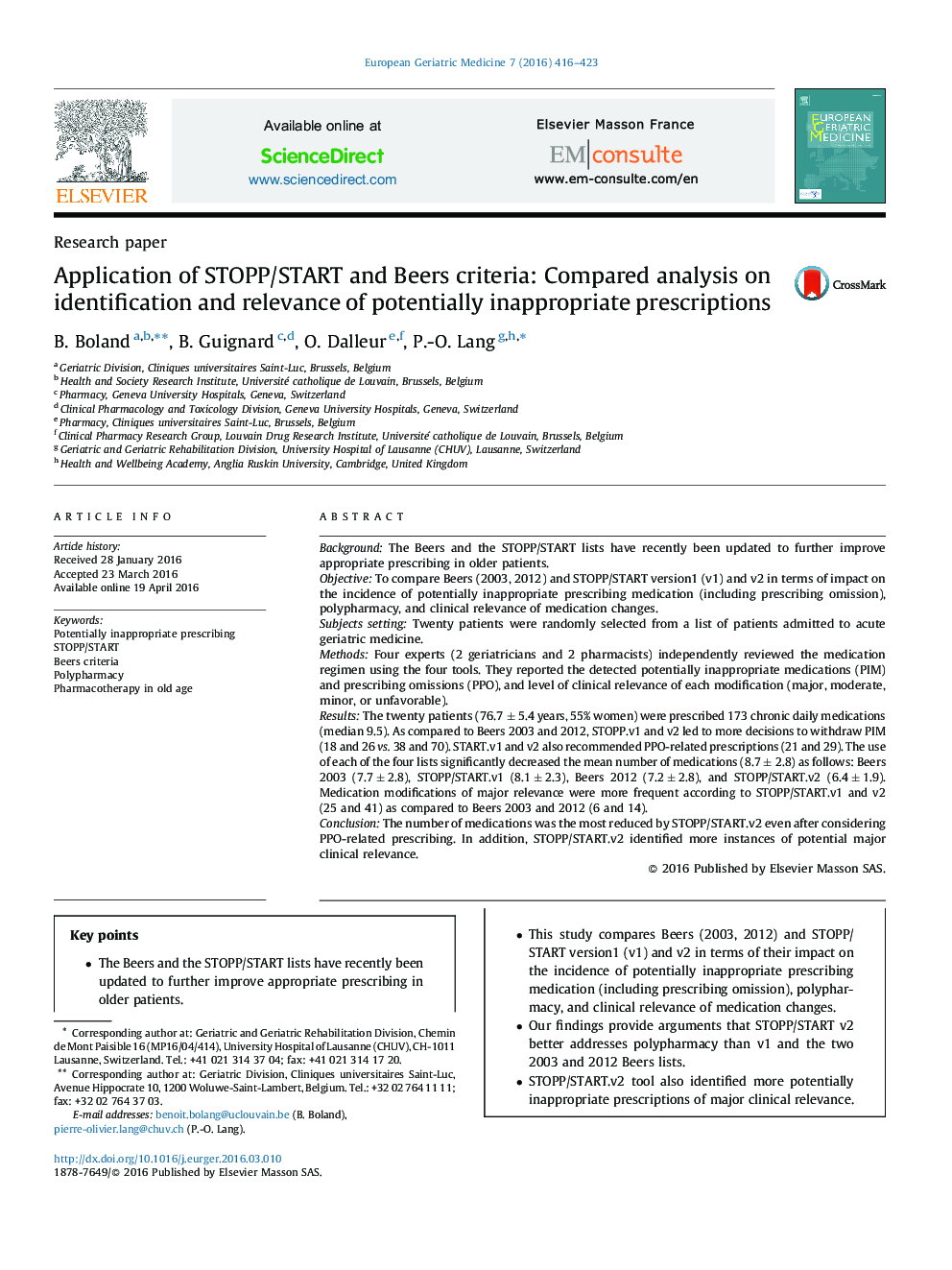| Article ID | Journal | Published Year | Pages | File Type |
|---|---|---|---|---|
| 5662570 | European Geriatric Medicine | 2016 | 8 Pages |
BackgroundThe Beers and the STOPP/START lists have recently been updated to further improve appropriate prescribing in older patients.ObjectiveTo compare Beers (2003, 2012) and STOPP/START version1 (v1) and v2 in terms of impact on the incidence of potentially inappropriate prescribing medication (including prescribing omission), polypharmacy, and clinical relevance of medication changes.Subjects settingTwenty patients were randomly selected from a list of patients admitted to acute geriatric medicine.MethodsFour experts (2 geriatricians and 2 pharmacists) independently reviewed the medication regimen using the four tools. They reported the detected potentially inappropriate medications (PIM) and prescribing omissions (PPO), and level of clinical relevance of each modification (major, moderate, minor, or unfavorable).ResultsThe twenty patients (76.7 ± 5.4 years, 55% women) were prescribed 173 chronic daily medications (median 9.5). As compared to Beers 2003 and 2012, STOPP.v1 and v2 led to more decisions to withdraw PIM (18 and 26 vs. 38 and 70). START.v1 and v2 also recommended PPO-related prescriptions (21 and 29). The use of each of the four lists significantly decreased the mean number of medications (8.7 ± 2.8) as follows: Beers 2003 (7.7 ± 2.8), STOPP/START.v1 (8.1 ± 2.3), Beers 2012 (7.2 ± 2.8), and STOPP/START.v2 (6.4 ± 1.9). Medication modifications of major relevance were more frequent according to STOPP/START.v1 and v2 (25 and 41) as compared to Beers 2003 and 2012 (6 and 14).ConclusionThe number of medications was the most reduced by STOPP/START.v2 even after considering PPO-related prescribing. In addition, STOPP/START.v2 identified more instances of potential major clinical relevance.
